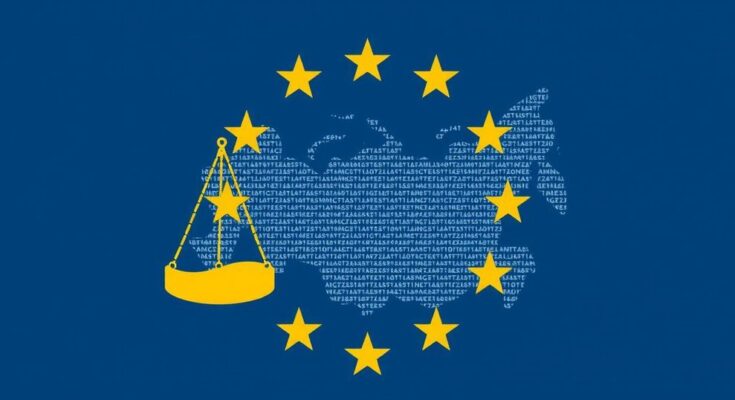The European Court of Human Rights ruled against Russia’s foreign agents law, declaring it a violation of freedoms. Those wrongfully impacted are entitled to compensation, yet enforcement is doubtful since Russia withdrew from the court. The ruling highlights the law’s punitive intent and its chilling effects on civil society and independent media.
The European Court of Human Rights (ECtHR) has delivered a critical ruling that finds Russia’s foreign agents law to be in violation of individual freedoms, declaring that those wrongly impacted deserve compensation. This law, established in 2012, primarily targeted entities receiving foreign funds for political activities and has been exploited by the Kremlin to extend control over civil society and media. Names like Meduza and Radio Free Europe have been branded as foreign agents, reflecting a broader crackdown on dissent. The ECtHR’s assertion emphasized that Russia’s legislation was intended more for punishment and intimidation than for any genuine concerns regarding transparency or national security. The court, located in Strasbourg, France, serves as an arbiter for human rights disputes within Europe, yet it lacks the means to enforce its rulings. Despite this, 107 affected organizations and individuals are set to receive compensation between €5,500 and €10,000, although the implementation of this decision remains uncertain. Since withdrawing from the ECtHR and the European Convention on Human Rights in 2022, Russia has disregarded any ECtHR rulings that became enforceable after March 15, 2022. This means the compensation order may remain unheeded, foreshadowing continued struggles for those labeled as foreign agents. These individuals and organizations face extensive restrictions, often suffering financial losses and reputational harm in a landscape where the term “foreign agent” is associated with disloyalty or treachery. The implications of being designated a foreign agent are severe, requiring all published content to be marked, excluding them from electoral processes, hindering their ability to connect with youth, and inviting fines for noncompliance. The most notable penalty has been against Radio Free Europe, which was fined approximately €16 million. According to the ECtHR, these measures have instilled a chilling atmosphere on public discourse, eroding the foundations of democratic society and fostering an environment rife with suspicion towards independent voices.
The European Court of Human Rights (ECtHR) plays a pivotal role in international human rights law but lacks enforcement capabilities. The Russian foreign agents law emerged in 2012, targeting foreign-funded groups while evolving into a tool for governmental oppression against free speech and dissent. The Kremlin’s expanded definition of foreign agents includes a wide array of activists and independent media, leading to deliberate silencing of critical voices and the stifling of civic engagement in Russia.
The ruling by the ECtHR highlights major concerns regarding the Russian foreign agents law and its detrimental impact on civil liberties. While compensation is ordered for affected parties, the effectiveness of the ECtHR’s decision remains doubtful as Russia has opted out of the European human rights framework. The climate of fear and repression created by such laws severely hampers democracy, fostering distrust and stigma against those labeled as foreign agents.
Original Source: therecord.media



